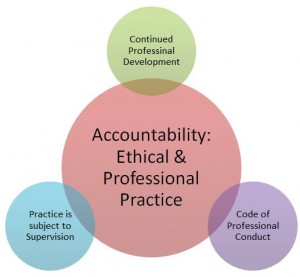
Continued Professional Development
Continued Professional Development [CPD] is the on-going education and development of practitioners, following the completion of formal training.
CPD consists of any educational activity which helps to maintain, develop or increase knowledge, problem-solving, technical skills or professional performance standards. CPD for mediators and arbitrators normally include formal tertiary study, short courses, conferences, workshops, as well as participation in simulated processes, mentorship, and presentation of case studies.
Practitioners are required to renew their DiSAC accreditation every 2 years. As part of this process they are required to submit proof that they participated in one or more continuing professional development program registered with the Council, and received a minimum of CPD points [DiSAC has not yet stipulated a minimum requirement].
The Accredited Service Provider under whose auspices a mediator / arbitrator practices, is obliged to offer their panelists access to qualifying Continued Professional Development (‘CPD’) programs.
Code of Professional Conduct
Mediators and arbitrators accredited with DiSAC have agreed to submit to, and practice in accordance with DiSAC’s Code of Professional Conduct.
Mediation
In order to ensure alliance with international standards, the Council has decided to adopt the code of professional conduct as prescribed by the International Mediation Institute.
ASP’s are entitled to adopt their own code of professional conduct, but every such code must be fundamentally compatible with the provisions as set out herein.
All mediators who apply for accreditation with the Council agree to also subject themselves to the provisions of this Code of Professional Conduct.
The Code of Professional Conduct addresses important issues such as:
- Independence and impartiality
- Conflict of interests
- Confidentiality
The Code of Professional Conduct is available here.
Arbitration
DiSAC will shortly adopt a Code of Professional Conduct for arbitrators.
Practice Supervision
Mediators and arbitrators accredited by DiSAC are subject to practice supervision.
This means that any member of the public who is dissatisfied by the conduct of a DiSAC accredited mediator / arbitrator will have access to a complaints and disciplinary process, through which he/she can address the issue.
Complaint against a mediator /arbitrator
The process for making a complaint are as follows:
- A complaint about the conduct of a mediator / arbitrator must be made in writing and signed by (or on behalf of) the complainant.
- The complaint must be referred to the ASP with whom the mediator/arbitrator is affiliated, and (if applicable) under whose auspices the process was conducted.
- The ASP must deal with the complaint in accordance with its internal complaints procedure, subject to the rules of natural justice.
- After dealing with the complaint the, ASP must forward details of the complaint and the outcome to DiSAC. There shall be no right of appeal to the Council against the decision of an ASP.
- DiSAC will consider the report and take such steps as it deems necessary, provided that the details of the report shall be published by DiSACl.
Complaints may be raised with DiSAC, who will assist the complainant in determining which ASP should deal with the complaint.
Complaint against an ASP
Any person, body or organisation (including a member of the Council) may make a complaint to the Council about an ASP’s fitness to remain accredited. A complaint about fitness must be made in writing and signed by (or on behalf of) the complainant.
Upon receipt of such a complaint the Council shall deal with the matter in any way it deems appropriate, subject to the rules of natural justice.



